When it comes to recreational vehicles (RVs), choosing the right toilet is crucial for both comfort and convenience during your travels. With several toilet types available – each with its unique set of features – it’s important to find one that best suits your needs. So, let’s explore five popular options: urine diverting, cassette, dry flush, incinerating, and gravity flush toilets.
Then we can find which toilet is right for you!
1. Urine Diverting Toilets
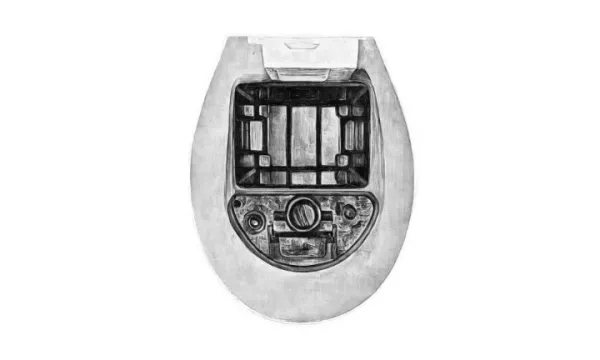
Urine diverting toilets, like the Ecolet Separera Mini and Trelino Evo, operate without the use of water, making them ideal for off-grid living and areas where water conservation is a priority. These toilets are designed with features like urine diversion, which separates liquid and solid waste, promoting faster composting and reducing odour.
Advantages
- Environmentally friendly with zero water use
- Easy to install and maintain
- Can be used in a variety of settings beyond RV
- Often lightweight an odourless due to proper ventilation systems
Disadvantages
- Requires regular emptying and maintenance, depending on usage
- Some models may need composting materials like wood shavings or coconut coir for solid waste
Best For
Off-grid and eco-conscious travelers, and those looking to reduce water consumption
2. Cassette Toilets
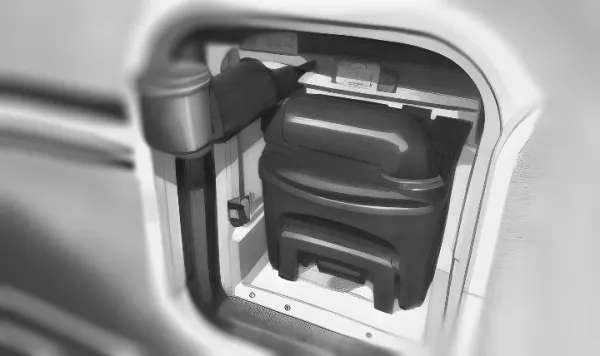
A cassette toilet is a common feature in many motorhomes and caravans. It consists of a fixed toilet with a removeable waste container that can be accessed from outside the vehicle. The cassette is typically treated with chemicals to break down waste and reduce odours.
Advantages
- Widely available in RVs
- Straightforward waste disposal at designated dump points
- Often includes a flush mechanism for comfort and cleanliness
Disadvantages
- Requires access to dump stations for emptying the cassette
- Chemicals used for waste breakdown are harmful to the environment
- Regular cleaning and maintenance are necessary to avoid odour and build-up
Best For
Travelers who frequent campsites and places with dumping facilities
3. Dry Flush Toilets
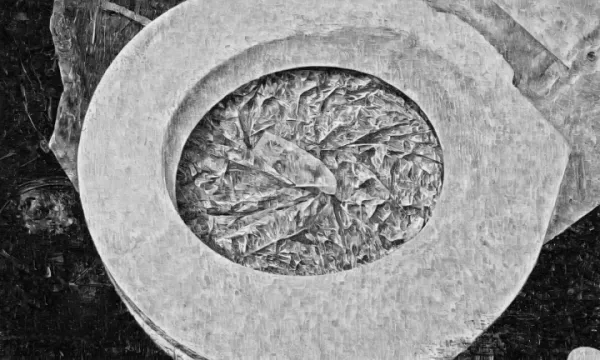
Dry toilets offer a convenient, waterfree solution by sealing waste into a bag after each use. Instead of dealing with waste directly, you simply remove and dispose of the sealed bags, for an easy mess free option.
Advantages
- No pumping or water needed
- No direct contact with waste when emptying
- Lightweight and compact, fitting easily into small spaces
Disadvantages
- Ongoing costs for expensive replacement cartridges or bags
- Not ideal for long-term use due to the frequency of bag changes
- Sealed bags take a long time to breakdown in landfill
Best For
Travelers looking for an easy to manage toilet for short trips or occasional RV use
4. Incinerating Toilets
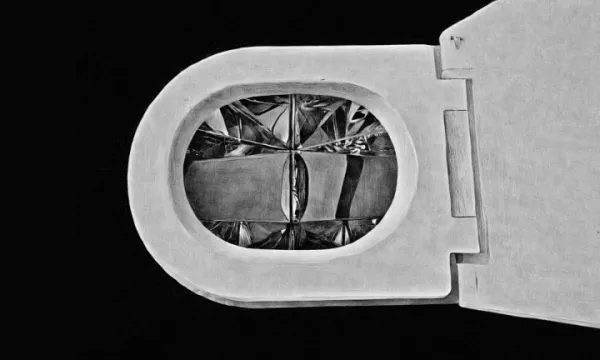
Incinerating toilets use electricity or gas to burn waste into a small amount of sterile ash. After each use, the waste is incinerated, leaving behind just a handful of ash that can be easily disposed of.
Advantages
- No need for water or chemicals
- Low volume byproduct (ash)
- Odourless when properly ventilated
Disadvantages
- Requires a power source
- Can be costly to install and operate
- Requires downtime between incineration cycles
Best For
Those with access to power and looking for a waste-free toilet solution
5. Gravity Flush Toilets
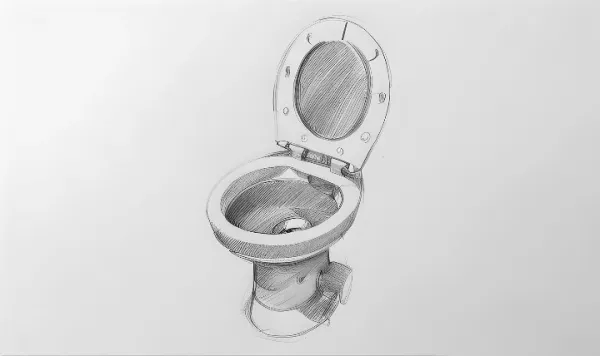
Gravity flush toilets, much like those found in traditional homes, use gravity to flush waste into holding tank below. These systems rely on water pressure to flush waste efficiently and are typically found in larger RVs with built-in black water tanks.
Advantages
- Provides a familiar, comfortable toilet experience
- Flushes waste quickly
- Less odour compared to cassette or dry toilets when the black water tank is properly maintained
Disadvantages
- Significantly more water usage compared to other toilet options
- Black water tank must be emptied at designated dump points
- Pumping and waste system is more complex
Best For
Travelers with large vehicles who have regular access to dump stations
Which Toilet is Right For You?
The ideal toilet for your RV depends on your travel habits, environmental conocerns, and willingness to manage waste. Urine diversion toilets are perfect for off-grid adventurers, while cassette toilets offer convenience for those visiting serviced campsites. Dry flush toilets are great for those seeking a quick and easy solution, while incineration toilets offer a long term solution as long as there is a reliable power source. Finally, gravity flush toilets cater to travelers with a larger and more comprehensive rig.
Regardless of your preferences, understanding the pros and cons of each type will help you make an informed decision that suits your RV lifestyle. Safe travels!
